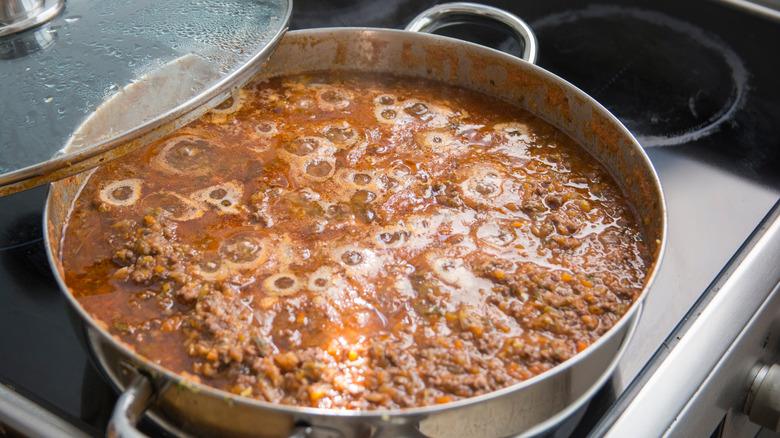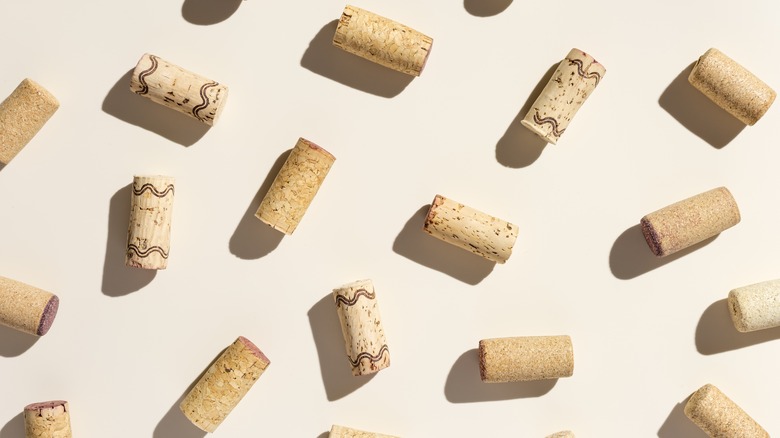What's Up With Cooking Pasta Sauce With A Wine Cork?
Some denizens of the internet love to nitpick Brooklyn Beckham's cooking. This time around, the aspiring chef raised some eyebrows when his eagle-eyed fans noticed a wine cork floating above the pasta sauce he was cooking in a photo he shared on Instagram. "The cork is the main dish," one user joked.
As bizarre as it may seem to some, cooking with wine corks is not unheard of. In an attempt to defend his choice, Beckham shared an excerpt from an article in Naples Daily News by food writer Doris Reynolds that says the wine corks "ensured a more tender dish." Reynolds claimed that the effectiveness of wine corks in aiding meats to cook well in stews and broths is backed by research. She also wrote that while experts disagree on the use of corks, chefs and people well-versed in cooking octopus and squid insist that the corks contain enzymes that improve the food.
Although wine corks have been used in cooking for quite some time and can be found in Italian octopus recipes, there are some who believe it is nothing more than an old tale. "The only way to have a fantastic ragù is to cook it for at least three hours. This is the only way to have soft meat," Italian chef Barbara Pollastrini told Insider as she explained why she believes Beckham's wine cork method for making bolognese sauce is ineffective.
The efficacy of wine corks in cooking is unclear
Cook Street School of Culinary Arts' executive chef instructor John Parks doesn't believe in a wine cork's mystical culinary powers, either. "Honestly, I think the cork is a myth," he told Westword. Food columnist and former apprentice chef Andrew Coppolino did his own experiment to test out its effectiveness and found the corks did little to tenderize the squids he cooked. "Drink the wine while you're cooking your squid — toss the cork to recycling," he wrote in his blog.
We've found no definitive answer to the question of whether wine corks tenderize meats. Italian restaurant II Posto's head chef Mario Pacheco vouches for its effectiveness in making octopus stews but can't put a finger on how it works. "We did an experiment with and without it, and found with the smaller [octopuses] it helped," he told Westworld. As for the science of how a piece of wood could help with cooking by simply swimming in a hot pot, the belief appears to be that the enzymes in corks work as tenderizers. However, it is important to note that corks are sterilized before they are used as stoppers. Organisms that would produce enzymes may well be removed.
So, does your wine cork pass as a pantry staple? It looks like you're going to have to try and test it out yourself.

